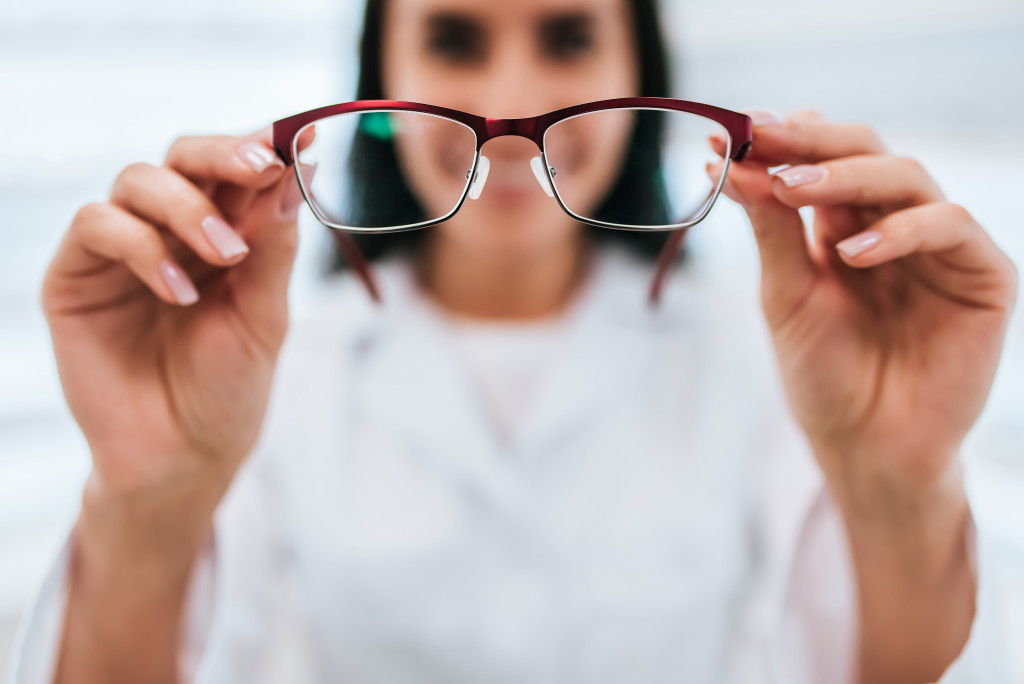A healthy pair of eyes is a blessing. However, most people don’t realize how much they rely on their eyesight until it begins to deteriorate. Many things can affect your vision, some of which you may not even be aware of.
Aging
As people age, they may start to experience vision problems. This is often due to changes in the eye that occur with aging. For example, the eye’s lens may become less flexible, making it difficult to focus on close objects. The cornea may also thin and flatten, affecting its ability to bend light properly. In addition, the cells in the retina may break down, reducing the sharpness of vision. These changes often happen gradually, so they may not be noticeable initially.
However, over time, they can lead to significant vision problems. There are a variety of treatments available for age-related vision problems. For example, MGD dry eye treatment can help improve symptoms of dry eye disease. This gives you a better quality of life and can help you keep your vision for longer.
Diseases
Some diseases can also lead to vision problems. For example, diabetes can damage the blood vessels in the retina, leading to diabetic retinopathy. This can cause blurred vision and, in severe cases, blindness. Other diseases affecting vision include glaucoma, macular degeneration, and cataracts.
Similar to aging, these diseases often happen gradually. This means that they may not cause any symptoms at first. However, as they progress, they can lead to serious vision problems. Therefore, you must be aware of the diseases that can affect your vision and get regular check-ups with an eye doctor.
Exposure to sunlight
Too much exposure to sunlight can cause damage to the eyes. This is because sunlight contains ultraviolet (UV) rays, which can harm the cornea and retina. This damage can lead to solar retinopathy, which can cause vision problems.
Solar retinopathy is usually Temporary and resolves itself within a few months. However, in some cases, it can lead to permanent vision loss. So, it would help if you took care to protect your eyes from sunlight. You can do this by wearing sunglasses or a hat when you are outdoors.
Smoking

As you may know, smoking is bad for your overall health, but did you know that it can also damage your vision? Smoking has been linked to several vision problems, including cataracts, macular degeneration, and diabetic retinopathy.
This is because smoking damages the blood vessels in the eye. This can lead to reduced blood flow and oxygen supply to the retina. In turn, this can cause vision problems. So, if you smoke, it’s vital to quit for the sake of your vision.
Alcohol consumption
Excessive alcohol intake can also cause vision problems. This is because alcohol can damage the nerves in the eye. This can lead to optic neuropathy, which can cause blurred vision, blindness, and other vision problems.
Optic neuropathy is a severe condition that can be permanent. The only way to prevent this is by drinking alcohol in moderation. Try to be more aware of your consumption and reduce your intake if necessary.
Nutritional deficiencies
Certain nutritional deficiencies can also lead to vision problems. For example, a lack of vitamin A can lead to night blindness. Vitamin A is essential for the health of the retina. So, if you don’t get enough of it, you may start to experience vision problems.
Other nutritional deficiencies that can affect vision include zinc and omega-3 fatty acids. These nutrients are essential for the health of the eye. So, if you don’t get enough of them, you may start to experience vision problems. You can get these nutrients from a variety of foods. For example, you can get vitamin A from leafy green vegetables, carrots, and sweet potatoes. You can get zinc from seafood, meat, and nuts. And you can get omega-3 fatty acids from oily fish, such as salmon and mackerel.
Staring at screens for long periods
Nowadays, it’s common for people to spend long hours staring at screens. This can be damaging to the eyes and lead to vision problems. This is because staring at screens for long periods can cause eye strain. Eye strain can cause some symptoms, including headaches, fatigue, and dry eyes.
If you work with computers or other electronic devices, take breaks every 20 minutes. This will help to reduce the risk of eye strain. It would help if you also tried to blink more often when staring at a screen. This will help to keep your eyes moist and prevent dry eyes.
Final thoughts
In conclusion, there are several things that can affect your vision. Being aware of these things can help you to take steps to protect your vision. If you’re worried about your vision, you should see an eye doctor for a check-up.

